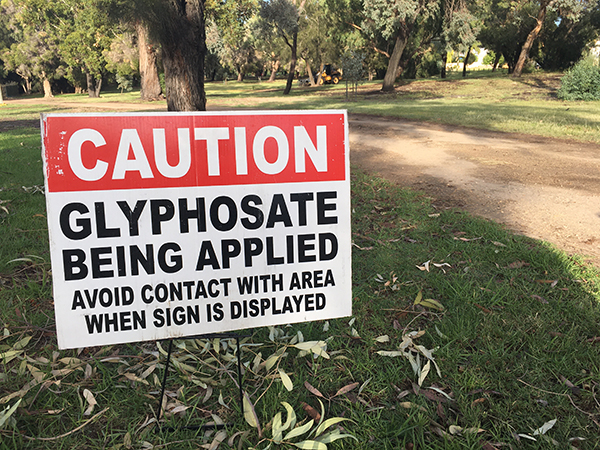
A study conducted by researchers in Spain revealed that almost half of the meat products in supermarkets could be hiding potentially deadly drug-resistant superbugs.
The study found multidrug-resistant E. coli strains in 40 percent of beef, chicken, pork and turkey products for sale in shops across the country. The study also revealed that E. coli strains that can cause severe infections in people were "highly” prevalent in the tested meat products.
Experts warned that antibiotic resistance is reaching "dangerously high" levels globally.
Drug-resistant infections kill an estimated 700,000 people around the world annually. That figure could skyrocket to 10 million by 2050 if not addressed immediately, according to estimates.
Multidrug-resistant bacteria can spread from animals to humans through the food industry. But data on the levels of antibiotic-resistant bugs detected in food is often unavailable.
To address this, Spanish researchers developed a series of experiments to accurately measure levels of multidrug-resistant and extraintestinal pathogenic Enterobacteriaceae, a family of bacteria that includes E. coli, Klebsiella pneumoniae and other bacteria that can cause health issues like sepsis and urinary tract infections (UTIs).
For the study, the researchers tested 100 meat products from random supermarkets across Oviedo, Spain, in 2020. The products included 25 samples each of chicken, turkey, beef and pork.
The results showed that nearly three in four meat products (73 percent) contained levels of E. coli that were within food safety limits. (Related: Antibiotic-resistant SUPERBUGS found in imported SHRIMP sold at Canadian supermarkets.)
We are building the infrastructure of human freedom and empowering people to be informed, healthy and aware. Explore our decentralized, peer-to-peer, uncensorable Brighteon.io free speech platform here. Learn about our free, downloadable generative AI tools at Brighteon.AI. Every purchase at HealthRangerStore.com helps fund our efforts to build and share more tools for empowering humanity with knowledge and abundance.
Meanwhile, almost half (49 percent) of the samples contained multidrug-resistant bacteria or potentially pathogenic strains of E. coli. Out of this group, the researchers recovered and characterized 82 E. coli isolates.
The research team also recovered a dozen K. pneumoniae isolates from 10 of the 100 meat products, including seven samples of poultry.
Study findings revealed that 40 of the 100 meat products contained multidrug-resistant E. coli. The highest prevalence of positive extended-spectrum beta-lactamase (ESBL)-producing E. coli was found in turkey (68 percent) and chicken products (56 percent).
The researchers explained that the higher presence of ESBL-producing E. coli strains in poultry compared to beef and pork could be due to differences in the slaughter and production of these meat products.
The study also found that more than a quarter of the meat products (27 percent) contained potentially pathogenic extraintestinal E. coli (ExPEC).
ExPEC has genes that allow them to cause disease even outside of the gastrointestinal (GI) tract. Dr. Azucena Mora Gutierrez of the University of Santiago de Compostela-Lugo said ExPEC causes the vast majority of UTIs. It is also a leading cause of sepsis and the second-leading cause of neonatal meningitis.
One of the meat products was found to contain E. coli harboring the mcr-1 gene, which creates resistance to colistin, an antibiotic used to treat infections caused by bacteria resistant to all other antibiotic medications.
Efforts to stop superbugs should start at farms
Gutierrez advised that manufacturers must prioritize "farm-to-fork interventions" to protect consumers. She also suggested that enforcing surveillance lab methods for further study of high-risk bacteria common in farm animals and meat could help address the issue.
According to Gutierrez, consumers should always cook meat thoroughly. Meat should also be stored properly in the refrigerator, and knives, chopping boards and other cooking utensils used to prepare raw meat must be properly disinfected to avoid cross-contamination.
Enforcing these measures can help reduce risk to zero, concluded Gutierrez.
Safety tips when buying meat
Different types of bacteria can grow on animal products. This highlights the importance of safely handling and storing all types of meat.
If you are confused about the different rules for handling different types of meat, follow the tips below to protect your family from harmful bacteria found in meat.
Don't buy meat that’s past the expiration or sell-by date. When buying groceries, buy meats last to reduce the time the meat is out of refrigeration.
Here are some specific guidelines for selecting certain meats:
- When buying beef or pork, avoid meat that is dark brown or discolored, has a strong odor or feels tough or slimy.
- When buying poultry, avoid meat that looks faded, has a strong odor or feels tough or slimy.
- When buying fish, avoid products that are faded or discolored. Fresh fish is not squishy or slimy and does not have a strong fishy or ammonia-like odor.
- Avoid any meat that is in damaged, leaking or torn packages. The meat inside has likely been exposed to the air and harmful bacteria.
Buy organic meat from trusted stores and cook food thoroughly to protect your family from harmful bacteria and food poisoning.
Visit Superbugs.news for more articles about antibiotic-resistant bacteria.
Watch the video below to learn more about meat contaminated with nanotech.
This video is from the Suzie Etc- Search for Truth channel on Brighteon.com.
More related stories:
Yoga mats may be filled with antibiotic-resistant microbes, according to study.
GMO MEAT? Bill Gates now spending tens of millions to genetically modify livestock.
Sources include:
Please contact us for more information.




















